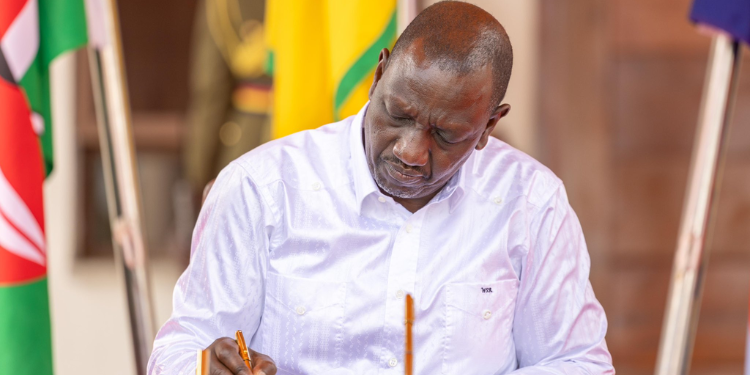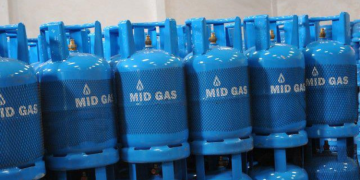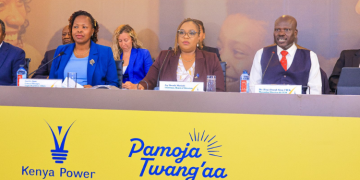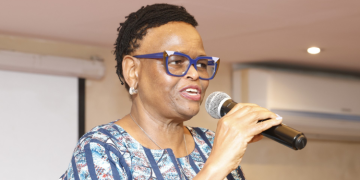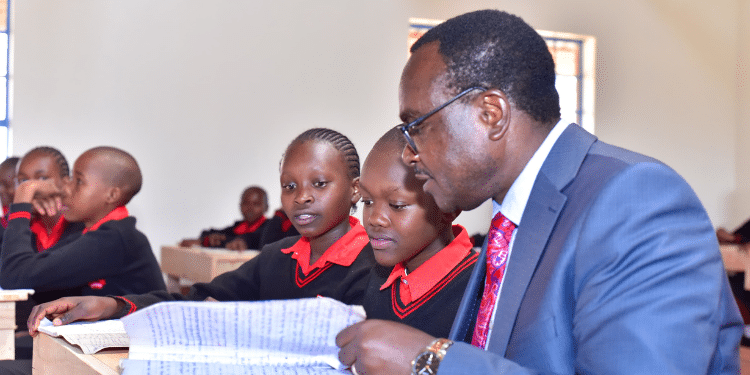The Kenya National Examinations Council (KNEC) has published the official timetable and instructions for the 2025 Kenya Junior School Education Assessment (KJSEA) Qualifying Test.
KJSEA is a summative national examination administered for students in grade 9 completing the Junior Secondary School (grades 7-9) education cycle.
The examination replaced the Kenya Certificate of Primary Education (KCPE) in the new Competence-Based Curriculum (CBC) education system.
KNEC, in an update on May 20, 2025, announced that the timetable for this year’s test scheduled to run from June 9 to June 11 has been published.
The examination council added that the test will be online to assess candidates’ eligibility.
“The timetable is available on the KNEC website. A qualifying test is an assessment administered to candidates joining the Kenyan education system from other countries or other education systems in the country,” read part of the update.
“All candidates registered for the KJSEA qualifying examination must report to the designated assessment centre on June 9 for orientation on the online testing before the actual test.”
Also Read: TSC Announces Internships with Ksh 25K Monthly Stipend; How to Apply
According to the council, the candidates sitting the 2025 KJSEA qualifying test have already been contacted.
KNEC further said that the learners will register for KJSEA after the qualifying test is administered and marked.
KJSEA Timetable and guidelines
After completing the assessment, candidates will immediately receive their results and result slips, which must be signed by the Sub-County Director of Education (SCDE) for purposes of KJSEA registration.
KNEC stressed that the duration indicated on each question paper is final, and no additional time will be granted. In the event of conflicting information, the time stated on the paper should be considered correct.
Candidates are expected to arrive at the examination venue early, undergo a security check outside the room, and be seated at their assigned desks or tables at least 15 minutes before the start time. The first paper will begin at 8:30 a.m.
Latecomers—those arriving more than 30 minutes after the exam has started—will not be allowed to sit the test unless there are exceptional circumstances.
Communication during the exam is strictly forbidden, and carrying books, notes, or unauthorized materials constitutes an exam offense.
Other instructions
Additionally, mobile phones and other electronic communication devices are strictly banned in all exam centres. Possession of such items will result in cancellation of results.
Only KNEC-issued mathematical tables and non-programmable calculators (where permitted) may be used during the exams.
KNEC also cautioned that any form of exam malpractice or misconduct will be dealt with according to the KNEC Act No. 29 of 2012, Sections 27 to 40. Penalties may include the cancellation of an entire subject, and the awarding of a result marked as “Y.”
The Council urged all Sub-County Examination Officers to ensure candidates are fully informed of these rules and the serious consequences of failing to comply.
The national examination will be used to determine students’ overall performance across the junior school years, including school-based assessments and the grade 9 summative assessment, as outlined in the new curriculum framework.
Among the registration requirements of KJSEA are that learners must be listed in the Grade 9 database, possess a Kenya Primary School Education Assessment (KPSEA) Performance Report, and have School-Based Assessment (SBA) scores for Grades 7 and 8 in all learning areas.
The official timetable and instructions for the 2025 KJSEA Qualifying Test can be accessed here: 2025 KJSEA Online Qualifying Test.
KNEC Outlines Factors That Will Determine Placement of Learners to Grade 10
Earlier in the year, KNEC Chief Executive Officer David Njeng’ere explained that the transition of Grade 9 learners to Senior Secondary School will be coordinated through their respective school heads.

He further stated that candidates will be required to complete online questionnaires—distributed through their schools—to provide feedback on their interests and personalities.
This information will play a key role in guiding their placement into Senior Schools.
“KNEC has developed and uploaded sample papers for the Kenya Junior School Education Assessment, available on the KNEC CBA portal,” Njeng’ere noted.
“KNEC will also distribute an online questionnaire to KJSEA candidates through their schools to gather feedback on their interests and preferences. This data will be essential in informing placement decisions by the Ministry of Education.”
In April, Dr. Fred Odhiambo, Deputy Director of Education in the Directorate of Secondary/Senior School, reaffirmed this during the 2nd Annual Symposium on Competency-Based Assessment (CBA) held on April 23.
He emphasized that placement would consider learners’ choices, including preferred pathways, tracks, subject combinations, and schools.
According to Dr. Odhiambo, Senior Schools will be categorized by pathways (triple or double), accommodation (day or hybrid), gender (single-sex or mixed), and special needs (special needs or vocational senior schools).
Students will be required to choose 12 schools based on their preferred pathways.
Also Read: KNEC Outlines Factors That Will Determine Placement of Learners to Grade 10
These include 9 boarding schools (3 within their home county and 6 from outside their county of residence) and 3-day schools (all within their home sub-county or sub-county of residence).
For subject combinations, learners will select 4 schools for their first-choice track and subject combination, 4 for their second choice, and 4 for their third-choice combination.
No more KCPE
KNEC projects that KJSEA will be administered to an estimated 1,145,585 learners who were in Grade 8 in 2024 and have now transitioned to Grade 9.
The 2025 academic year marks a significant change to the education system in Kenya, as for the first time in 39 years, there will be no form one admissions in secondary schools following the abolishment of the Kenya Certificate of Primary Education (KCPE).
This is as the secondary schools prepare to host Grade 10, Grade 11 and Grade 12 learners under CBC, with the pioneer class reporting in 2026.
The shift follows the phasing out of the 8-4-4 system in primary schools and the full CBC transition which is entering a new phase.
Follow our WhatsApp Channel and X Account for real-time news updates.





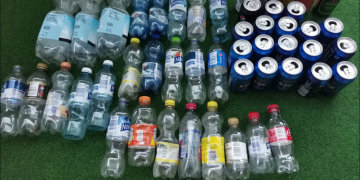



![14 Companies To Be Granted New Mining Licenses By Govt [Full List] Cs Joho Lists 14 Firms Seeking Mining Licences, Kenyans Given 42 Days To Respond]( https://thekenyatimescdn-ese7d3e7ghdnbfa9.z01.azurefd.net/prodimages/uploads/2025/11/Mining-CS-Hassan-Joho-touring-the-Voi-Gemstone-in-Taita-Taveta-County-on-Friday-August-16-2024.-PHOTOJoho-360x180.png)
